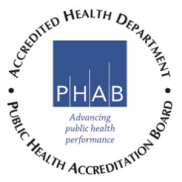What is Congenital Syphilis?
Congenital syphilis occurs when a mother with syphilis passes the infection to her baby during pregnancy or childbirth. Syphilis is caused by the bacterium Treponema pallidum. Without timely treatment, the infection can lead to serious complications for the baby, including stillbirth, neonatal death, or long-term health issues.
Arkansas has seen a 156% increase in congenital syphilis cases from 2018-2023. According to the CDC, approximately 40% of babies born to women with untreated syphilis can be stillborn or die from the infection as a newborn. Timely testing and treatment during pregnancy might have prevented 9 in 10 cases in 2022 nationwide.

Health Impacts on the Baby
Congenital syphilis can result in a wide range of complications, which may include:
- Early-stage symptoms (first weeks/months of life after delivery):
- Low birth weight
- Jaundice (yellowing of the skin)
- Seizures
- Severe anemia
- Rash, particularly on the palms and soles
- Swollen liver and spleen
- Deformed bones
- Late-stage symptoms (after 2 years of age if untreated):
- Developmental delays
- Deafness
- Saddle nose (flattening of the nasal bridge)
- Teeth abnormalities (Hutchinson’s teeth)
- Blindness
- Neurological issues
Symptoms in Pregnant Women
Many individuals with syphilis are asymptomatic or may not recognize their symptoms. Common signs include:
- A painless sore (chancre) at the site of infection.
- Skin rashes, often on the palms and soles.
- Fever, swollen lymph nodes, fatigue, and hair loss.
Diagnosis
Syphilis is diagnosed with a blood test, which is part of routine prenatal care in Arkansas.
Treatment
- Pregnant Women: A simple course of penicillin is the most effective treatment. It is safe during pregnancy and can prevent congenital syphilis if administered early enough.
- Newborns: Babies diagnosed with congenital syphilis are treated with penicillin immediately after birth to prevent or mitigate long-term complications.
Prevention
- Routine Prenatal Screening:
- Arkansas law requires syphilis testing during the first prenatal visit and during the 3rd trimester (between 28-32 weeks of pregnancy). Testing at delivery is required if not done during the pregnancy.
- Timely Treatment:
- Penicillin is highly effective at treating syphilis during pregnancy. Early detection and treatment can prevent transmission to the baby.
- Follow-up Care:
- Infants born to mothers treated during pregnancy should still undergo thorough examination and testing to ensure they are not infected even if they are born without any symptoms.
- Partner Follow-Up:
- Ensure that any current or recent sexual partners are tested and treated to avoid the risk of the pregnant mother getting reinfected.
Who is at Risk?
- Any mother who is living in Arkansas and sexually active
- Pregnant women with untreated or undiagnosed syphilis
- Pregnant women who did not receive prenatal care
- Those with multiple sexual partners, history of sexually transmitted infections (STIs), or partners with syphilis
What You Can Do
- Get Tested: Ensure syphilis screening is done during pregnancy
- Early Treatment: Start immediately and complete treatment if you are diagnosed with syphilis
- Partners: Ensure that all current sexual partners are informed, tested, and treated to avoid getting reinfected with syphilis
- Prevention: Correctly and consistently use condoms and dental dams during sexual activities. Avoid sexual contact with partners who have symptoms of syphilis infection. Talk to your partner(s) about their STI status and safer sex and encourage them to get tested.
SET-NET at the Arkansas Department of Health
The Arkansas Department of Health is partnering with the Centers for Disease Control and Prevention (CDC) to help protect mothers and babies from the consequences of public health emergencies.
Our health department, in collaboration with CDC, is monitoring pregnant women who test positive for syphilis through the end of their pregnancy and monitoring their infants through at least 2 years of age. We report cases of syphilis to CDC as part of CDC’s Surveillance for Emerging Threats to Mothers and Babies Network (SET-NET) (https://www.cdc.gov/set-net/about/index.html). Data collected as part of these efforts can help direct public health action and inform clinical guidance for the care of affected pregnant women and their infants.
Please contact us at 501-280-4830 or email [email protected] with any questions.
Resources
- ADH Congenital Syphilis Dashboard
- ADH Syphilis Fact Sheet
- CDC About Congenital Syphilis
- CDC Congenital Syphilis Fact Sheet
- Congenital Syphilis Provider Summit | 2nd Video
- Local Health Units
Clinician Resources
General Information
- CDC Fact Sheet on syphilis
- CDC Vital Signs on Newborn Syphilis
- CDC Taking a Sexual History
- NCSD Sexual Health and Your Patients: A Provider’s Guide
Laboratory Testing and Screening
- CDC Syphilis Laboratory Information
- CDC STD Screening Recommendations
- Recommended clinician timeline for screening during pregnancy
Treatment Guidelines and Clinician Resources
CDC Treatment Guidelines


